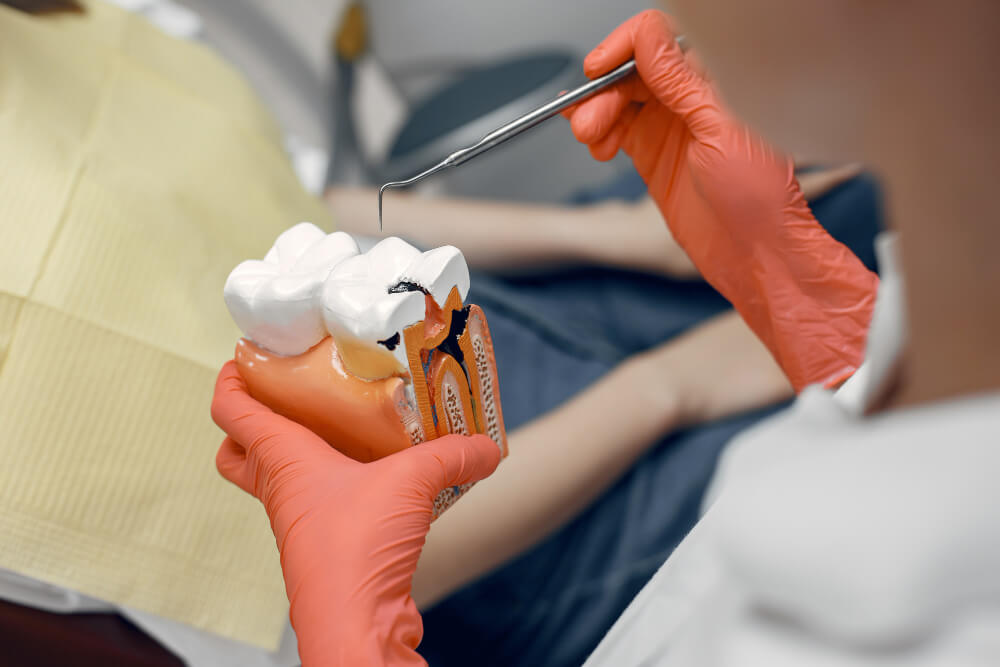
We start with a local anaesthetic to ensure your comfort during the procedure. At Cloud Nine Dental, we use a device called ‘the Wand,’ which administers the anaesthesia in a slow and controlled manner, making the process as comfortable as possible for you.
Your dentist will then carefully access the root canal system inside your tooth by drilling a small opening. The infected pulp is thoroughly cleaned out to remove any traces of infection.
Once cleaned, the root canal is filled temporarily, and your tooth is fitted with a crown. You will need to return for a follow-up appointment to ensure the infection is completely cleared, at which point the tooth will be permanently filled and restored.
First Appointment:
If you're experiencing pain, the main goal of the first visit is to alleviate it. We use local anaesthetic to numb the area, disinfect the tooth, and place medication inside. A temporary filling is then applied to protect the tooth until your second appointment, typically scheduled for one month later.
Second Appointment:
During this visit, we prepare and shape the canals of your tooth and apply another round of medication to ensure optimal results and improve the overall prognosis.
Final Appointment:
The last stage involves filling the canals with a rubber-like material to seal them securely. A final filling is applied, which is generally a prerequisite for a crown to provide additional strength and protection to the tooth.
Combining Appointments:
If the procedure is planned, appointments 1 and 2 can often be combined, depending on the severity of the infection. This can streamline the process and expedite your treatment.
After a root canal, the structural integrity of the tooth is inherently weaker. In 90% of cases, a crown is recommended to brace the tooth and prevent future damage. While a crown is not mandatory, it is highly advisable to protect your tooth long-term.
Additional Treatment Considerations:
For teeth with severe infections, an extra round of medication might be necessary to ensure the infection is fully cleared, leading to better overall results.
In 95% of patients, there is no post-operative pain following the initial visit. However, patients with severe pain may experience mild discomfort for up to four days following the initial procedure. Generally speaking, if the soreness is improving, it's normal. However, if the pain worsens, it's important to contact us immediately.
You will receive instructions on pain relief to help manage any discomfort that may arise during your recovery.